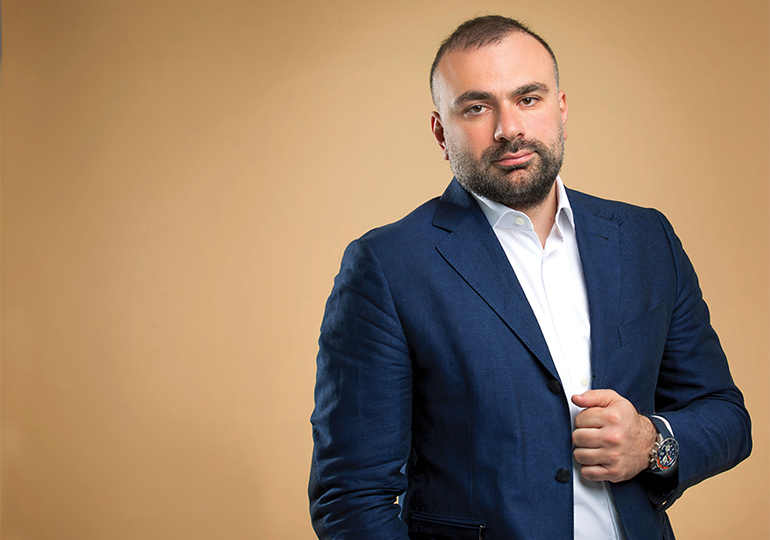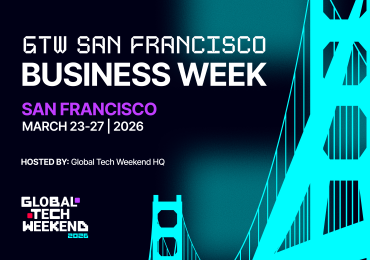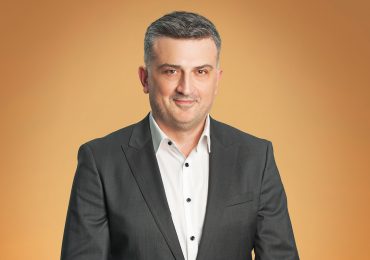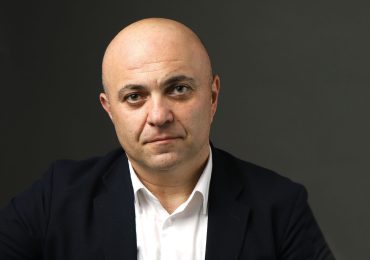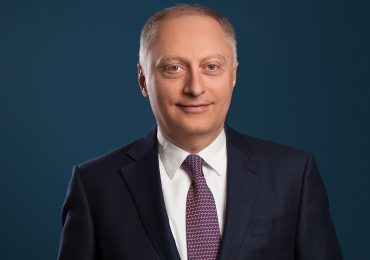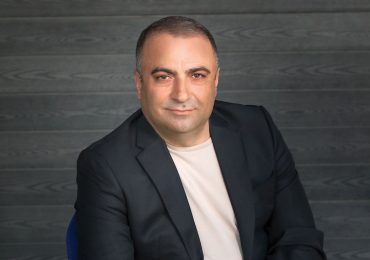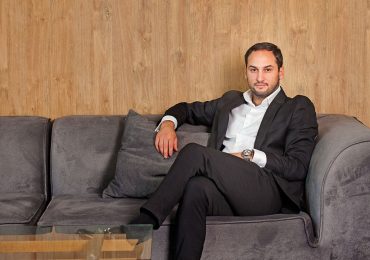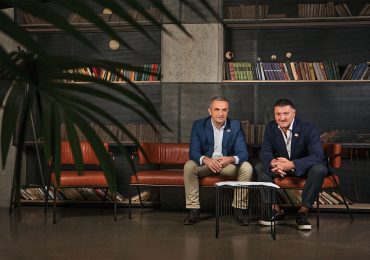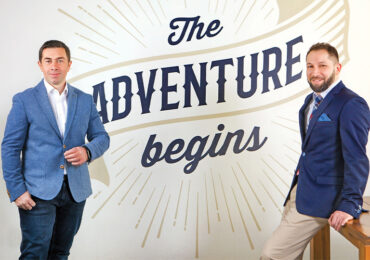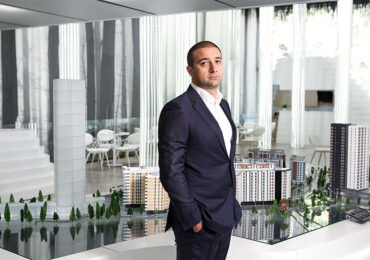TNET is Set to Become the Largest Technology Firm in Georgia and the Region by Uniting Several Digital Platforms (Myauto.ge, Vendoo.ge, Tkt.ge, Livo.ge, Mymarket.ge, Myhome.ge, Myparts.ge and Swoop.ge) and Making It Even Easier for Up to Two Million Users to Take Advantage of Their Online Services. Giorgi Chumashvili is Heading the Great Transformation.
THE DIGITAL PLATFORMS THAT ARE PART OF TNET HAVE AROUND TWO MILLION UNIQUE USERS IN TOTAL (70% OF THE COUNTRY’S ADULT POPULATION), AND ACCOUNT FOR 40% OF ALL GEORGIAN INTERNET TRAFFIC.
The digital platforms that are part of TNET have around two million unique users in total (70% of the country’s adult population), and account for 40% of all Georgian internet traffic. TNET’s main fields of activity are lifestyle, e-commerce, car sales and real estate. These four markets will be incorporated into a ‘super app’ to offer consumers all these services in a single program. The easily navigable app will be constantly enhanced to save customers time and money. This is the main goal of the great transformation.
TNET CEO Giorgi Chumashvili is responsible for implementing strategy, vision and policy. He has chosen to use the WeChat and Kaspi Bank development models, relying on the extensive experience he has accumulated in his career thus far.
He was educated at ESM, where he was taught not to get accustomed to a routine, and to constantly look for new challenges.
Giorgi Chumashvili is an entrepreneur. In 2004 he founded the supermarket chain Ioli, which was later absorbed by SPAR. He then created the real estate ecosystem allproperty.ge, which was purchased by TBC Group and rebranded into livo.ge. It currently operates as a joint platform of TNET and TBC Tech, offering services such as real estate evaluation, surveying, auctioning, registration, 3D scanning and, most importantly, a secure transaction system designed to prevent fraud.
Chumashvili took part in the Goodwill rehabilitation project and helped establish the conceptual vision for Ori Nabiji (a classic discount chain with a limited product range). He also founded the popular fast-food chain Degusto.
As we can see from these examples, Giorgi Chumashvili’s signature is to create and develop products and services, but also to prepare an exit strategy in advance, attract investors and immediately look for a new challenge. Today, his challenge is to ensure the success of TNET.
You have accumulated broad experience in a variety of fields. Have you been able to utilize your array of skills at different points in your career?
All my experience revolves around the customer. I know what I must do based on the client’s needs. This is exactly what I am doing today – I know what the customer needs in the digital space. I have learned to always attach crucial importance to the customer – to see the products and processes through their eyes. This is how the customer experience principle works: First, we identify what the customer needs, then we develop a process that meets these needs, and only then do we start thinking about profit. We are a customer-oriented organization. This is how we think and this is our approach.
You must need a lot of customer data to be successful in this regard, right?
Indeed, we are involved in a very complex process where we serve around two million users each year. This is an enormous number. We account for 40% of all internet traffic in Georgia, and this gives us access to a unique volume of data – billions of records about people’s behavior. We are now starting to use this data to provide our clients with more targeted offers. The more we know about the specific needs of our customers at a specific moment, the more flexibly, purposefully and continuously we can offer them the products and services that they require. We, therefore, put the following question to our employees: What do you think our customers need that we do not offer them? This approach can be beneficial, as it is impossible for us to do everything by ourselves, so if there is something that we cannot offer our clients independently, we might be able to do it jointly with other businesses.
What you are offering your customers is the ability to save both time and money?
That is correct. Our goal is to use technology to save people time and money. People who find themselves in our ecosystem should want to stay with us because of the benefits.
TNET operates in the fields of lifestyle, e-commerce, car sales and real estate. These markets offer products that are already well known to consumers. What will change for them?
TBC Group owns shares in different tech firms. I suggested we merge these platforms into a single company. Early indications are that this merger has had a strong upside, the company has grown fivefold over the last six months.
As for the products and activity areas, the lifestyle category includes digital platforms that people need every day, such as tkt.ge and swoop.ge – ticketing and discount voucher platforms respectively.
The e-commerce category includes platforms such as vedoo.ge and mymarket.ge. This is quite a large activity area, where the pace of growth increased substantially during the pandemic. Considering the urban set up and other aspects of Georgia, where everything is close to each other and it is impossible to create substantial added value through logistics alone, we have to offer additional benefits to customers in online sales. We are moving ahead slowly, but we are not stopping.
Mymarket.ge is the undisputed leader among ecommerce platforms. It is used by everyone regardless of their income and status, which is a unique phenomenon. Users can expect plenty of upcoming news in this field. We will try to further stimulate e-commerce by making transactions more simple and secure. Mymarket.ge is also unique in offering the opportunity to pay in instalments for second-hand products. This service has proven to be extremely popular so far.
We are also in the process of launching myparts. ge – a platform for selling car parts. We are essentially moving second-hand car parts into an e-commerce category. This is a complicated process, but we already have made some progress. We have assembled a strong team and are currently recording 10-15 transactions daily.
Another category is housing – anything related to real estate. In this space we have myhome.ge and livo. ge as our main platforms. Myhome.ge is the market leader and generates substantial traffic. Livo.ge is a niche platform offering real estate services to a specific segment of customers.
With regards to car sales, myauto.ge is the undisputed leader and accounts for 93% of traffic, meaning that almost every Georgian who wants to buy a car uses our digital platform. Myauto.ge now has more listed vehicles than the Rustavi market, where physical sales take place.
To summarize, we have a strong network effect – buyers and sellers alike can confidently use our platform. This is what our data is built on. With well-developed artificial intelligence, we can properly analyze our users’ behavior and come up with appropriate offers for them.
Things will get even easier once these categories are merged into a single ‘super app’. How did the idea of a ‘super app’ come about?
The idea was born about a year ago. Creating a super app means adjusting to global trends. Just think about it – we have many apps on our phones, but we only use about 5-7 of them a day. The aim is to ensure that our app is used by people every day – for example, to discover special offers, find out about various events or check where they can buy specific furniture or appliances. In addition, they will be able to pay through the app.
Sounds like a complex task. How much time will it take?
The prototype will be ready by the end of the year. It will take another three to four years for the system to become fully operational.
Is the market being helpful?
Up to two million unique users benefit from our services each year. The average number of monthly users is 1.4 million. These are impressive figures: 70% of the adult population are buying or selling products on our platforms, meaning that we have achieved top of mind awareness in every field.
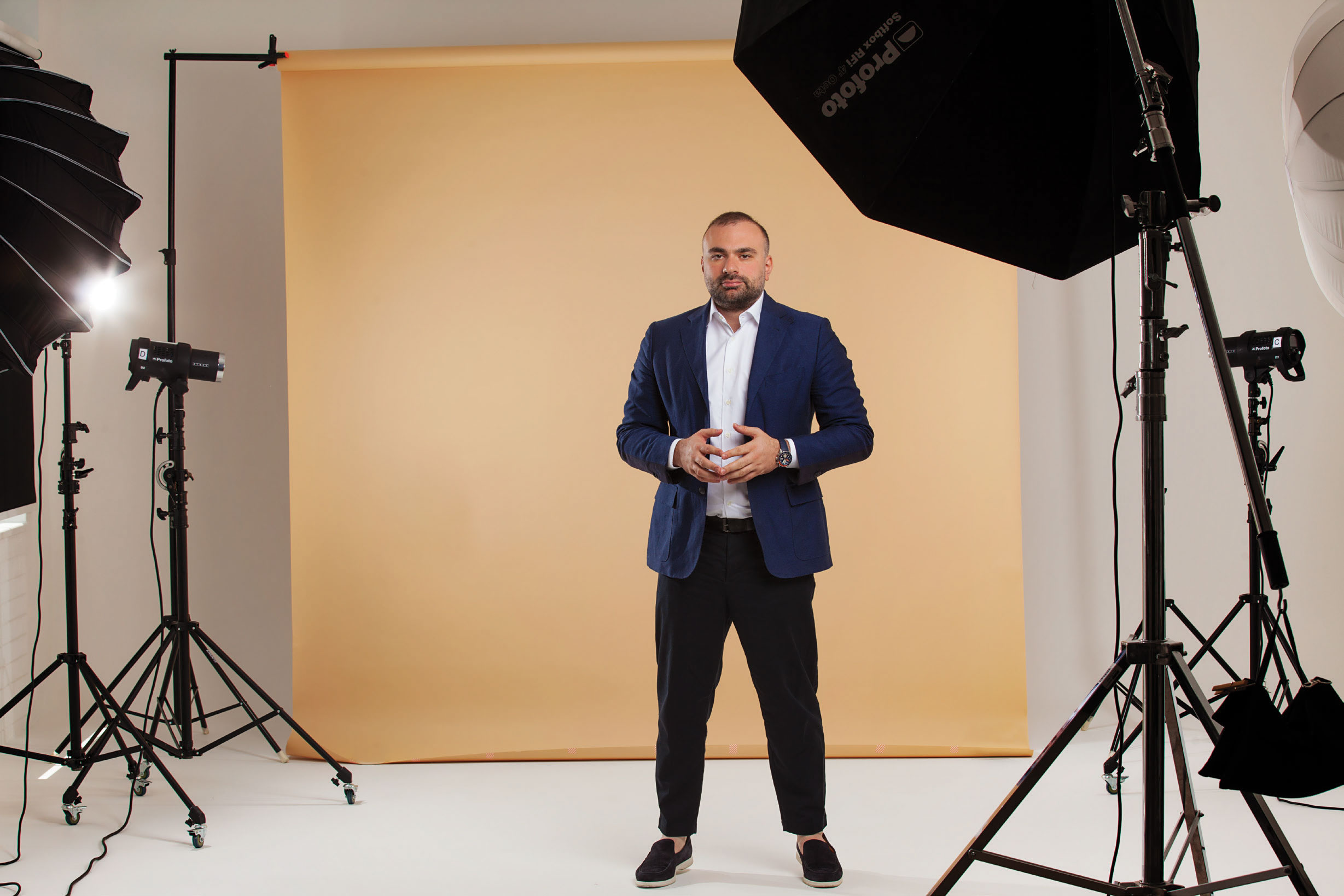
We are growing organically. We are currently thinking of adding children’s services, and our goal is to increase the number of unique users to 2.2-2.3 million. However, it is more important to ensure that people spend as much time in our ecosystem as possible. Furthermore, we aim to double the average annual spending per user from the current ₾52. To put it simply, we want our users to live with us. On our part, we are determined to keep up with the trends and work both independently and jointly with our partners to save our customers time and money.
You will probably need more staff for this. Do you plan to hire more personnel, and what kind of people will you hire?
That is a good question. We are IT people. We currently have around three hundred employees, more than 60% of whom are IT specialists. Their professionalism and engagement are critically important for us to implement the plans that we are actively working on right now.
For example, we are adding a clothing category. From September, customers will be able to purchase clothing and accessories through myshop.ge. We also want to add an auction function on mymarket.ge, which will make the sales process more transparent and bring the prices on our platform closer to market prices.
All this will be included in the ‘super app’, where the dashboard and layout will look different for different consumer groups, meaning that people will have easier access to the products and services that they most need, as determined by artificial intelligence.
Is it easy to find people with these skills on the market? Are you sourcing them internationally, or focusing on the local job market?
We are looking to hire the most talented individuals, wherever they may be from. We have never limited ourselves to the local market. For example, TNET currently has employees working remotely from Ukraine.
Our main task is to properly develop our IT environment. Many foreign companies are coming to Georgia right now. Some of them are large and successful firms that facilitate staff development, but there are also those who allow their employees to operate on illegal software. We want to overcome this challenge through a three-year development program.
As part of this program, our staff and prospective employees will have access to our unique stack of eight programming languages. They can choose any of these languages to improve their skills in, and we will support them in this process. We operate on agile principles, and our organizational setup is attractive for career development.
Even if people decide not to stay with us after completing this three-year program, we will help them find a job in a reputable international company. We work with several large international tech firms who will soon become our partners. We will make a public announcement about this soon.
The most important thing for us is to achieve results. Our customers must be one click or one offer away from something that will save them time and money. Our offers will be more accessible and affordable than anywhere else.
As you probably realize, work in this field never ends – it is a continuous process that must be improved all the time.
It is also more complicated than many people may think. There are challenges, and I would like you to tell us a little bit more about them: What obstacles do you face on your mission?
E-commerce is growing. It barely generated 1% of total sales before the pandemic. Now it is becoming a trend and could reach 7-10% over the next two or three years, which is a massive leap forward. We want to at the very least keep up with this global trend.
The challenges are mainly global in nature. For example, we are following the trend of Facebook. If this social network can develop to the same extent in Georgia as it has in the U.S. and become a strong player in the field of e-commerce, it would significantly increase competition.
The current situation in Georgia is such that despite the presence of competitors in some small segments, we do not feel threatened by them. However, when it comes to Facebook, we must prepare a defense strategy in case they start offering instalment plans, payments, and so on. We are already preparing our vision for staying competitive, and this vision is part of our long-term strategy.
70% OF THE ADULT POPULATION ARE BUYING OR SELLING PRODUCTS ON OUR PLATFORMS, MEANING THAT WE HAVE ACHIEVED TOP OF MIND AWARENESS IN EVERY FIELD
We currently hold a 40% share of the market. It is important for us to consolidate and then enhance our position in this segment. However, it is more important to ensure that users spend as much time as possible on our app.
This is where our employment policy comes into play as another part of our long-term strategy. We realize that we will have to increase the number of IT staff from the current three hundred to five hundred. This is not a random number – we have assessed and calculated everything precisely.
Developing qualified personnel is a big challenge, but we cannot do anything without them. Their professional development has become part of our corporate responsibility.
Globalization presents us with the threat of large companies tempting our qualified staff to work for them. As a result, it is also part of our strategy to devise manuals and programs to present these people with opportunities that they currently lack.
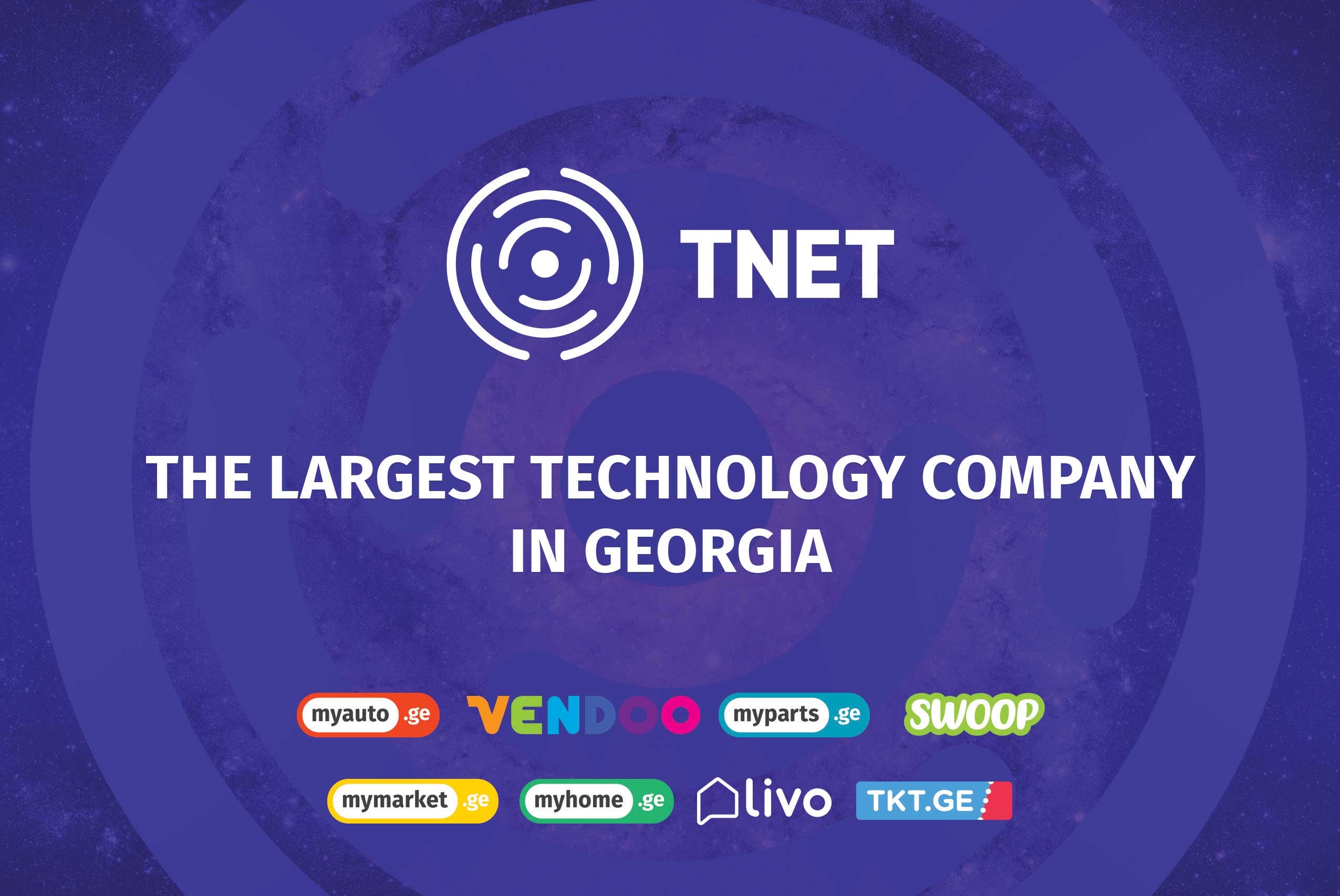
Finally, what would be your main message to our readers?
TNET is the largest Georgian tech firm that incorporates all the leading platforms used by people today. What is also important for us is the embodiment of the circle that is on our company logo: Whoever comes into this circle, should not want or need to leave. We, therefore, try our best to create maximum comfort for our clients and ensure that they can get everything they need from us.
Our promise is to provide the kind of user experience not found elsewhere: Tailor-made offers and products that people may need at any given time. With our dynamics, we can determine what is required by consumers at any given moment.
The ‘super app’ will be our most valuable gift to our users. Our platforms enable transactions worth billions of GEL, and we want to be able to see what the customer may be missing to be able to offer a solution to them before they turn elsewhere.
The main goal is to ensure that users do not have to leave our ecosystem. This is what we devote our attention to as a company.

